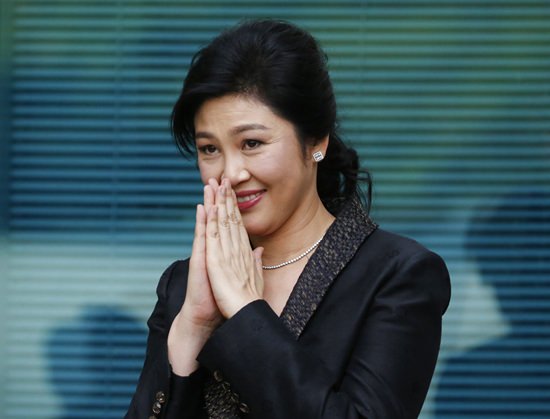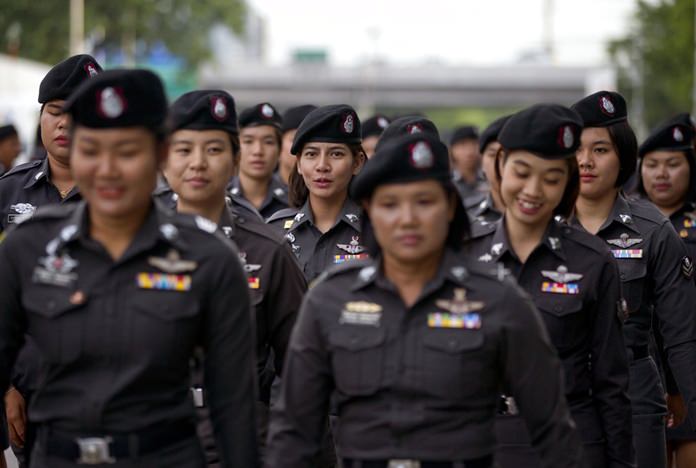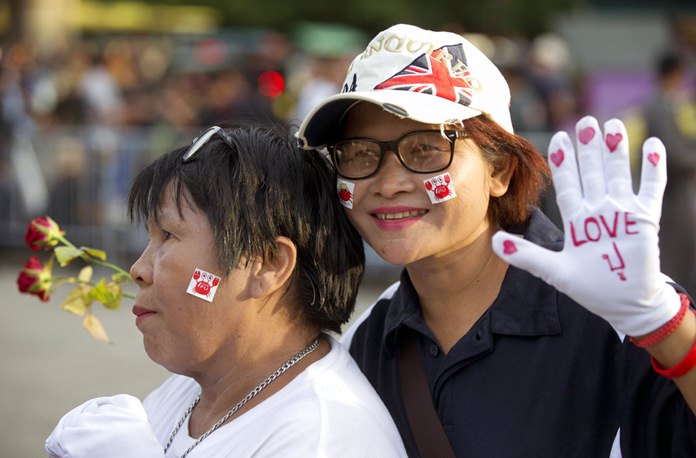
BANGKOK (AP) — Thailand’s Supreme Court has issued an arrest warrant for former Prime Minister Yingluck Shinawatra after she failed to show up for a contentious trial verdict in which she could face a 10-year prison term for alleged negligence in overseeing a money-losing rice subsidy program.
A judge read out a statement saying that Yingluck’s lawyers had informed the court she could not attend because of an earache. But the judge said the court did not believe the excuse because there’s no medical verification, and the court would issue a warrant for her arrest as a result. The court also ordered the seizure of her 30-million-baht bail bond.
A verdict had been expected to be delivered within hours in the tense trial, in which Yingluck is accused of negligence in overseeing the rice subsidy program that cost the state billions of dollars. The hearing was postponed to Sept. 27.
Yingluck has pleaded innocent, and decries the charges as politically motivated. If convicted, she has the right to appeal.
The case is the latest chapter in a decade-long struggle by the nation’s elite minority to crush the powerful political machine founded by Yingluck’s brother, Thaksin Shinawatra, who was toppled in a 2006 and now lives in exile. He has not commented on his sister’s case.
Thaksin’s ouster triggered years of upheaval and division that has pitted a poor, rural majority in the north that supports the Shinawatras against royalists, the military and their urban backers.
The rice subsidies, promised to farmers during the 2011 election, helped Yingluck’s party ascend to power. Critics say they were effectively a means of vote buying, while Yingluck supporters welcomed them.
Yingluck’s government was overthrown in another coup in 2014, and the military has ruled the Southeast Asian nation ever since.
The junta has clamped down since then, banning political gatherings of more than five people. The long-awaited decision on Yingluck’s fate has rekindled tensions in the nation, but the military remains firmly in charge.
Fearing potential unrest, authorities tried to deter people from turning out Friday by threatening legal action against anyone planning to help transport Yingluck supporters. Yingluck also posted a message on her Facebook page urging followers to stay away, saying she worried about their safety.

Thousands of people turned up outside the Bangkok court house anyway, though, along with thousands of police who erected barricades around the court.
Prawit Pongkunnut, a 55-year-old rice farmer from the northeastern city of Nakhon Ratchasima, said he came with 10 other farmers to show solidarity with Yingluck.
“We’re here to give her moral support because she truly cared and helped us out,” Prawit said.

The rice subsidy plan Yingluck oversaw paid farmers about 50 percent more that they would have made on the world market. The hope was to drive up prices by stockpiling the grain, but other Asian producers filled the void instead, knocking Thailand from its perch as the world’s leading rice exporter.
The current government, which is still trying to sell off the rice stockpiles, says Yingluck’s administration lost as much as $17 billion because it couldn’t export at a price commensurate with what it had paid farmers.
Yinguck pleaded innocent in the case, saying she was the victim of a “political game” aimed at crushing the Shinawatra clan.
In a separate administrative ruling that froze her bank accounts, Yingluck was held responsible for about $1 billion of those losses — an astounding personal penalty that prosecutors argued Yingluck deserved because she ignored warnings of corruption but continued the program anyway.
Associated Press journalists Grant Peck and Kankanit Wiriyasajja contributed to this report.




